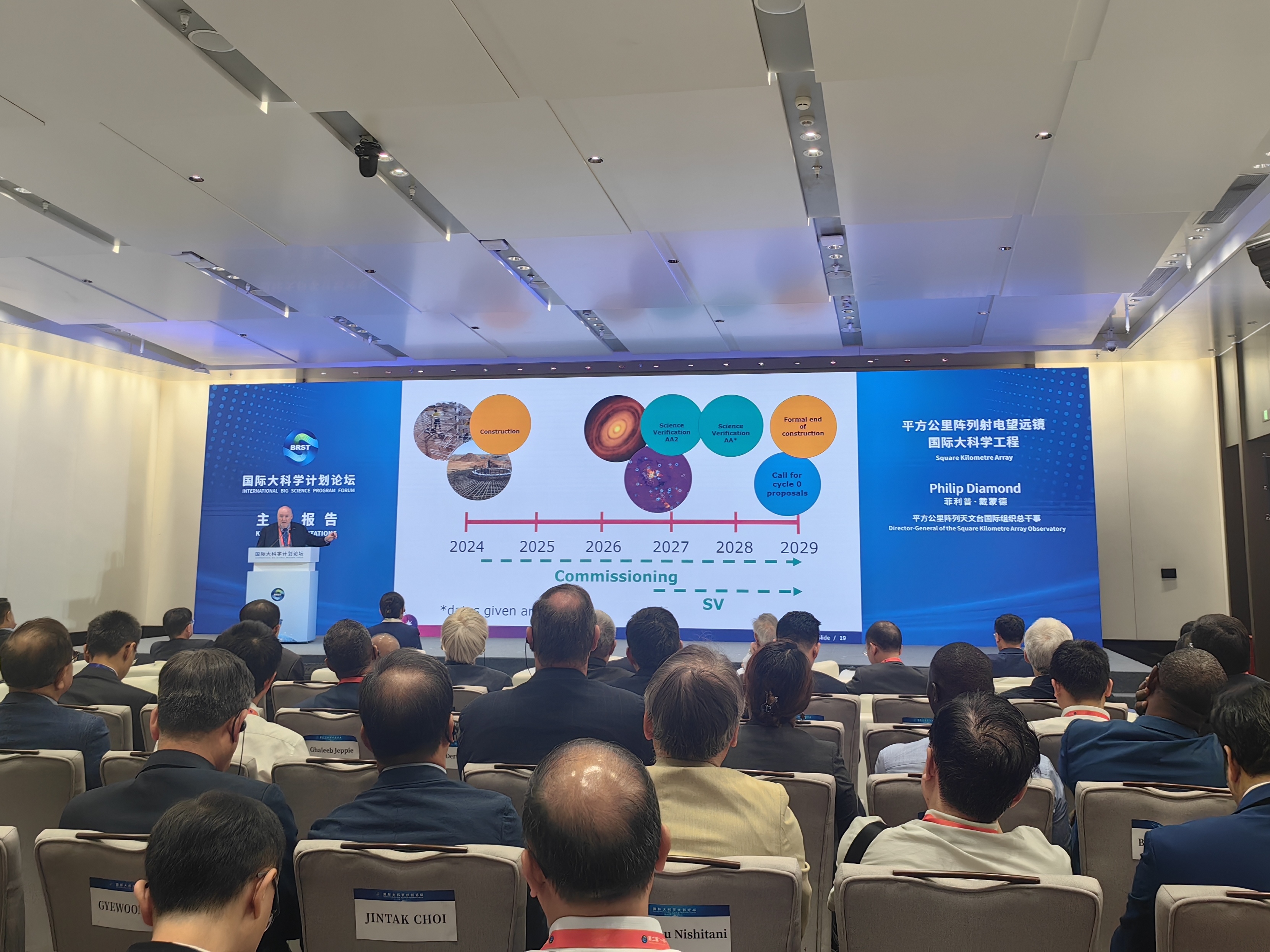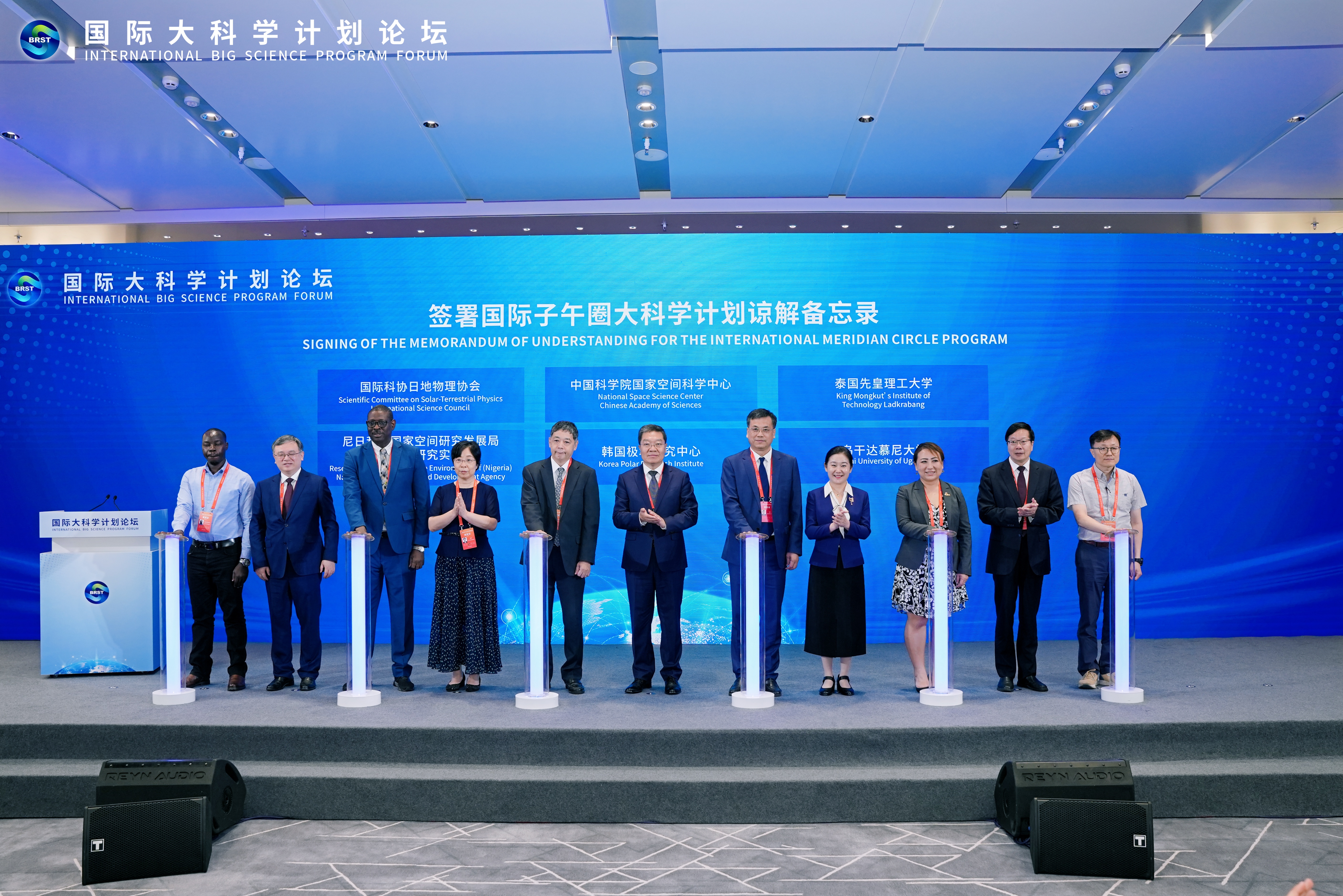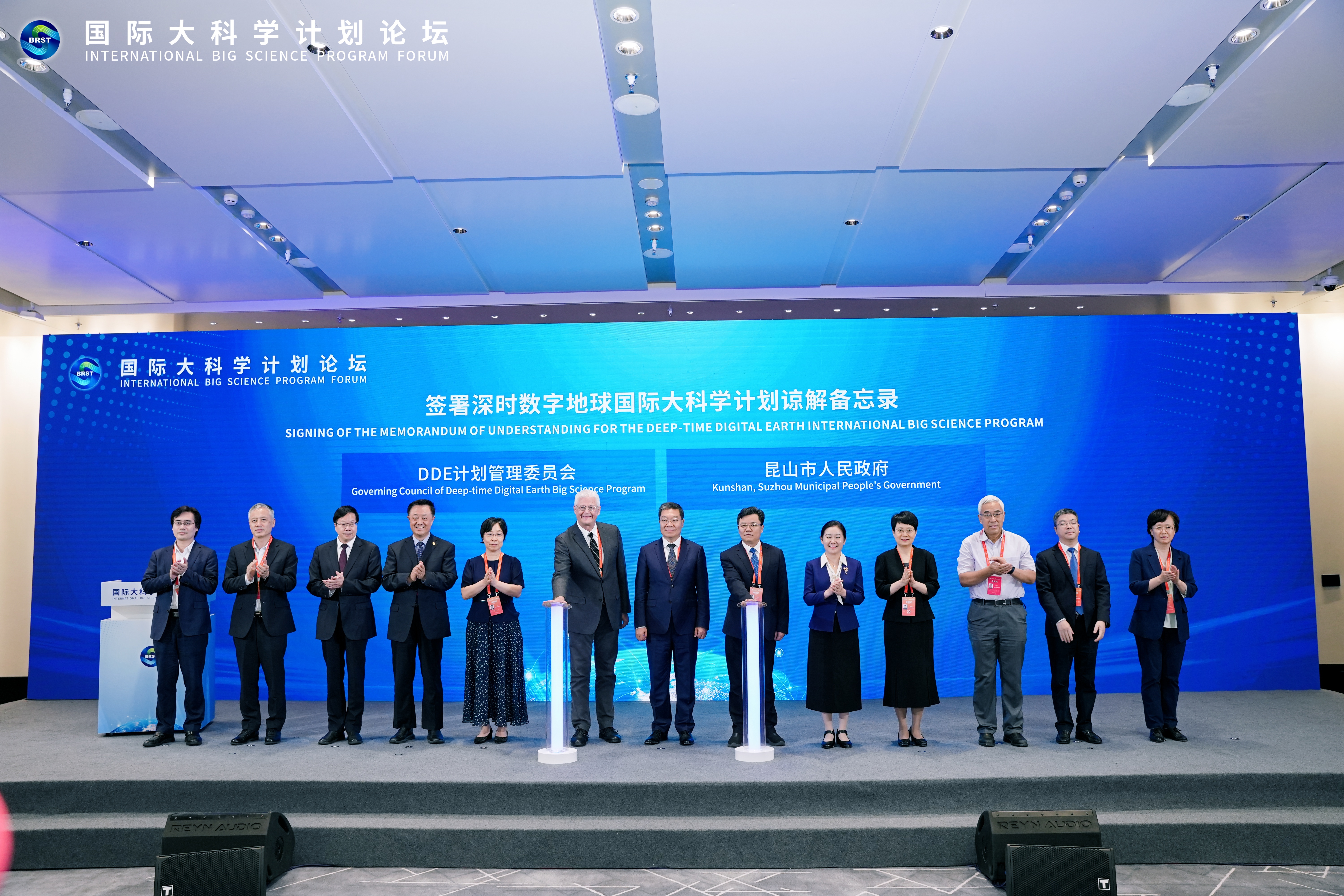Big Science Programs Tackle Shared Challenges Together
The International Big Science Program Forum held during the 2nd Belt and Road Conference on Science and Technology Exchange on June 12 underscored the importance of global collaboration in tackling some of the world's most pressing scientific challenges.
International big science programs are pivotal in pushing the boundaries of knowledge, exploring scientific frontiers, and addressing complex global issues. Committed to upholding the principles of openness, fairness and non-discrimination, China plays an active role in major international initiatives such as the International Thermonuclear Experimental Reactor (ITER) and the Square Kilometre Array (SKA).

Chinese scientists have spearheaded several groundbreaking projects including the Deep-time Digital Earth (DDE), Ocean Negative Carbon Emissions (ONCE), the Proteomic Navigator of the Human Body (π-HuB), and the International Meridian Circle Program (IMCP).
Chen Jiachang, vice minister of science and technology of China, said the Chinese government issued a plan to organize international mega-science programs and mega- engineering projects in March 2018. "The initiative aims to harness Chinese expertise in solving global scientific challenges and to provide sci-tech public goods that serve the entire world," he said.
He highlighted that the government supports DDE and ONCE in conducting scientific research and international cooperation in their respective fields. Additionally, the ministry backs the scientific community in initiating projects like π-HuB and IMCP, and is willing to support the launch of more international large-scale scientific programs in the future, foster extensive international collaboration to address shared global challenges, and build a global community of scientific cooperation.
Jing Guifei, a researcher at the School of Space and Earth Sciences of Beihang University, said with Chinese scientists taking the lead in initiating international big science projects, China is contributing its wisdom in science culture, such as mutually-beneficial cooperation for win-win results, to the global sci-tech governance system.
Representatives from various international big science programs expressed their willingness to collaborate with global scientists and institutions to promote open science and contribute to sustainable human development.
"The SKA supports open science principles, similar to the long-standing 'open skies' tradition in radio astronomy," Philip Diamond, director general of the SKA Observatory, said, adding that this forward-looking approach aligns well with China's broader commitment to collaborative and open science.
"The ONCE program is a great international project with impressive vision and it has the potential to really contribute to address one major part of the global climate change challenge," said Spiros Agathos, a marine bioengineering expert and a member of the Academy of Europe. "The collaboration among scientists from many nations is very effective in achieving the goals."

At the forum, the National Space Science Center of the Chinese Academy of Sciences, the lead institution for IMCP, signed cooperation agreements with five new international institutions.
"Science is win-win cooperation, we always gain from each other," Michel Blanc, a researcher at the French Institute of Research in Astrophysics and Planetology, said. There are difficult scientific challenges where resources, talent, expertise and financial resources across the world have to be pooled, and people all around the world have to work together. IMCP is a perfect example of that. "We need big science and we need international cooperation," he added.
Felix Dapare Dakora, a member of the African Academy of Sciences, said China's big science programs will bring tangible benefits to the Belt and Road Initiative (BRI) partner countries. "The visionary leadership shown by China in initiating mega science programs will fast track the development of humanity," he commented.

The DDE Governing Council and the municipal government of Kunshan in Suzhou, Jiangsu province, renewed their agreement to host the DDE Secretariat.
Harvey Thorleifson, president of the DDE Governing Council, said the DDE program, which focuses on building a team with contributions both from the East and the West, has made excellent progress in constructing Earth science databases, and in the way this science is being applied as the world goes through energy transition, and the progress is in part because of China's support.
Scientists from around the world also exchanged views on data sharing, technology transfer, and joint training of scientific talent.







